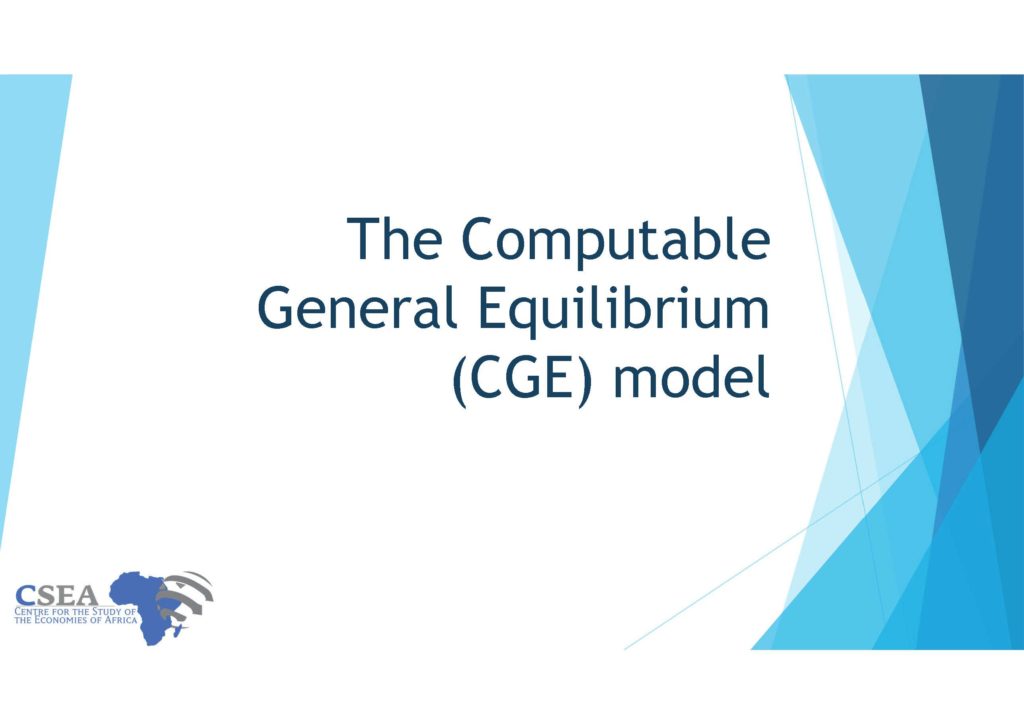The CGE component is aimed at complementing the consultations and inputs gathered and analyzed from key stakeholders on the project as discussed in the survey session. It would also provide a quantitative analysis of the AfCFTA in a general equilibrium framework. Extant studies undertaken to assess FTAs are mostly carried out using CGE models. CGE models are computer-based simulations used for the overall assessments of trade agreements at the region, country, and broad sector level.
Seminar Presentation

May 15, 2020
The Computable General Equilibrium (CGE) model
The CGE component is aimed at complementing the consultations and inputs gathered and analyzed from key stakeholders on the project as discussed in the survey session. It would also provide a quantitative analysis of the AfCFTA in a general equilibrium framework. Extant studies undertaken to assess FTAs are mostly carried out using CGE models. CGE […]
Read →
Related
The Budget, Fiscal Policy And Service Delivery
The
paper discusses the Macroeconomic impact of budget and its process and how to
achieve an efficient and timely budget cycle.
Achieving Inclusive Growth Through Pro-poor Spending
The
paper examines if the nature of the economic growth in Nigeria is inclusive
(Pro-poor) or exclusive (pro-rich) and recommends ways to achieve inclusive
growth with emphasis on Pro-poor spending.
Fuel Subsidy Reform, Social Safety Nets (SSNs) And Pro-poor Growth
The
paper examines the importance of fuel subsidy reforms and how the Nigerian
government can achieve a successful reform. It also examines the link between
safety nets and growth to help facilitate reform and inclusive growth.
Public Spending On Education And Health In Nigeria
The paper conducts a Benefit Incidence Analysis to determine if public expenditure in education and health sector in Nigeria is pro-poor or pro-rich.
